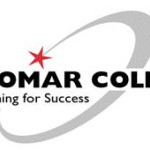- Branche: Education
- Number of terms: 12355
- Number of blossaries: 0
- Company Profile:
Founded in 1946, Palomar College is a public two-year community college in the city of San Marcos, located in north San Diego County, California. Palomar offers over 300 associate degree, certificate programs and is designated by the U.S. Department of Education as an Hispanic-Serving Institution ...
The simple cell division process that occurs in somatic cells. One cell divides into two offspring cells that are identical to each other in their chromosome complement. Mitosis produces cells with diploid numbers of chromosomes--46 in the case of humans. See meiosis.
Industry:Anthropology
The sense of smell. With the exception of prosimians, primates are relatively poor at olfactory sensing.
Industry:Anthropology
The selectively permeable membrane enclosing the nucleus of a cell.
Industry:Anthropology
The second geological epoch of the Cenozoic Era. The Eocene spanned the time approximately 55. 8-33. 9 million years ago.
Industry:Anthropology
The scientific name of the upper leg bones. In the case of 4 legged animals, the femurs are in the rear legs.
Industry:Anthropology
The release of a secondary oöcyte from an ovary to begin its path down a fallopian tube (or oviduct) to the uterus.
Industry:Anthropology
The relatively rapid expansion and diversification of an evolving group of organisms as they adapt to new ecological niches. Adaptive radiation is the process by which one species evolves into two or more species. This occurs as a result of different populations becoming reproductively isolated from each other, usually by adapting to different environments. The branching pattern of evolution resulting from adaptive radiation is known as cladogenesis.
Industry:Anthropology
The relatively large red cells in blood that transport oxygen from the lungs to all of the living tissues of the body. Normally, 40-45% of human blood volume consists of erythrocytes.
Industry:Anthropology
